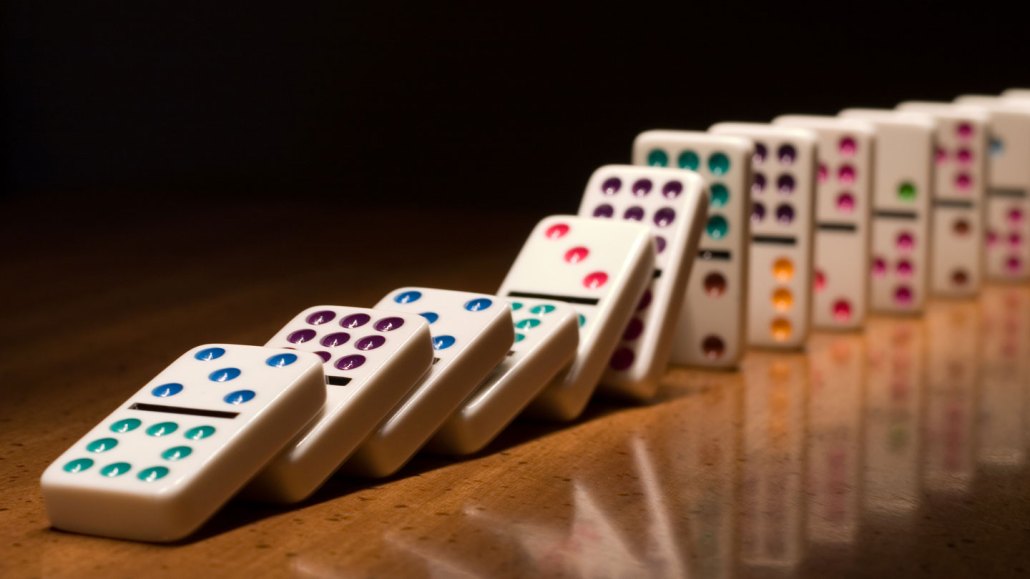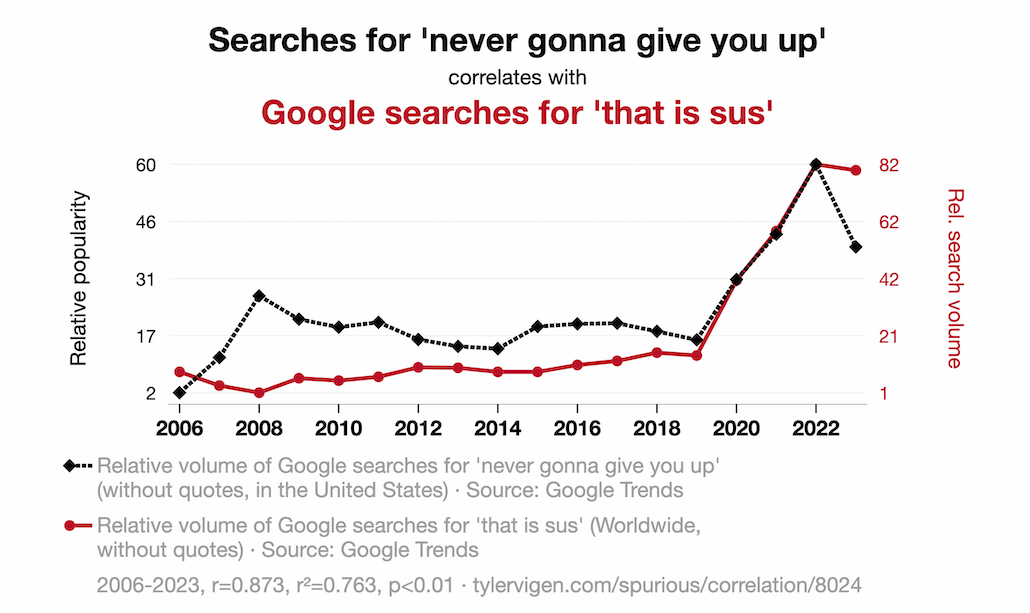Scientists Say: Correlation and Causation
Check your assumptions — one does not always imply the other

Tipping one domino causes another to tip as well. This cause-effect relationship means one event brings about another. But be careful. Correlations between events do not always imply causation.
Tim-e/E+/Getty Images
Share this:
- Share via email (Opens in new window) Email
- Click to share on Facebook (Opens in new window) Facebook
- Click to share on X (Opens in new window) X
- Click to share on Pinterest (Opens in new window) Pinterest
- Click to share on Reddit (Opens in new window) Reddit
- Share to Google Classroom (Opens in new window) Google Classroom
- Click to print (Opens in new window) Print
Correlation and Causation (noun, “cor-uh-LAY-shun” and “kaw-ZAY-shun”)
Correlation and causation are two different types of relationships between variables. Correlation means that as one variable changes, the other tends to change in a specific way. Causation means that changes in one variable cause changes in the other.
Correlations can be positive or negative. A positive correlation means that as one variable increases, the other increases too. For example, as people get more exercise, their mood tends to improve as well. A negative correlation means that as one variable increases, the other decreases. For example, as people get more exercise, their risk of heart disease tends to decrease.
Perhaps you’ve heard the statement “correlation does not imply causation.” This mantra tries to clear up a common misconception. It’s tempting to assume that when two variables are seen changing together, one change causes the other. But this isn’t necessarily the case.
Consider this example. A 2012 study found a strange correlation. The more chocolate a country consumes, the more Nobel Prize winners it produces. But wait before grabbing that candy bar. This correlation doesn’t necessarily mean that eating chocolate causes you to win a Nobel Prize.
There are a few reasons that variables might be correlated but not cause-effect-related. One possibility is a sneaky third variable.
Imagine you’re looking at data showing that people who eat more popsicles also have higher rates of skin cancer. Do popsicles cause skin cancer? It’s possible. But more likely possibilities exist. Maybe people in hot, sunny regions eat more popsicles to cool down. And people in those regions may get more sun exposure than those in cooler places. More direct sunlight might cause more sun-related skin cancers. In this case, sun exposure is the third variable causing the other two.

So how can you tell if when a correlation is an example of causation? To do this, you need to test whether changing one variable leads to changes in the other — while holding other variables constant.
Here’s an example. Perhaps you’ve noticed that plants in a sunny window grow more quickly than plants in a dark room. In other words, you’ve observed a correlation: plants that get more sun grow faster. But does increased sunlight causes increased plant growth? Maybe the plants in the window get watered more often than those in the dark room, and that’s why they’re growing faster. Or maybe the species of plants in the window grow faster than the species left in the dark.
To find out what’s going on, you might start an experiment with plants of the same size and species. Then, you’d divide them into two groups. Some would get more sunlight than others. Other than that, the plants would be treated the same. After a few weeks, you would compare growth between groups. If the group getting more sunlight grew more than the other, you can say that the increased sunlight caused the increased growth.
In a sentence
Researchers discovered that video gamers perform better than non-gamers on specific memory-related tasks, but further studies are needed to address lingering questions about correlation and causation.







